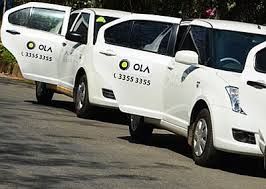 A recent missive from the Delhi government's transport authorities might have made it impossible for radio taxi aggregators such as Uber and Ola Cabs to operate legally in the capital.
A recent missive from the Delhi government's transport authorities might have made it impossible for radio taxi aggregators such as Uber and Ola Cabs to operate legally in the capital.
The authorities are insisting these companies state on affidavit that they complied with the ban orders issued in December last year, as a prerequisite for their pending licence applications to be cleared.
The directive, reviewed by Business Standard, has landed the companies in a Catch-22 situation, where they could invite legal trouble if they give the affidavit and if they don’t, their licence applications will not be cleared, making their operations illegal.
The companies seem to have hit a dead end with the authorities after this latest demand, sparking fresh trouble for their operations.
“We are talking to them (transport officials); we don’t know what to do,” said an official in the sector, who did not wish to be named. City government officials maintain the companies should have waited for actual licences to be given out before re-starting their operations that defied the ban.
“I don’t know what options they have now. They are violators; how can we speak on behalf of those who violate the rules?” said a government official, on condition of anonymity.
An affidavit stating the companies did not operate during the ban could be easily proved wrong.
The mobile applications of these companies continued to work on Thursday.
The Delhi transport department has also written to the central government’s department of electronics and information technology to block access to these applications. A decision by the latter might take some days.
Though there is no precedent of the government blocking any applications in the recent past, it is theoretically possible, said Sivarama Krishnan, executive director of audit and consultancy firm PwC India.
However, the task might not be easy. Several challenges could emerge while blocking these apps, especially if access in a particular city only has to be curtailed, added Krishnan.
The government could ban the applications through the operator's mobile gateway by the name of the application or by blocking it from the place it is hosted, which is the DNS server or the IP address -- the method the government employs to block websites.
“Technically, it is possible. Practically, it might not be easy to keep blocking it if the company switches the addresses,” said Krishnan.
The company could also tweak the name of the application to dodge the ban. However, the larger issue will be to block access to the application only in Delhi.
An operator can be told to block access to a particular site of app for its customers in a particular region but subscribers from other cities can access it in that particular city.
Also, it can be argued that access to the application has been blocked in Delhi, so that no one can use the app to book rides for Delhi; however, someone might want to book rides in, say, Bengaluru or Mumbai while being stationed in Delhi. “It is quite infeasible because of jurisdiction issues.
The government should try to block physical movement but blocking the application might not serve the purpose,” added Krishnan.Both Ola and Uber declined to comment on the story.











 © 2025
© 2025